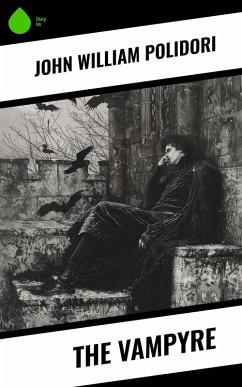John William Polidori's "The Vampyre" stands as a seminal work in Gothic literature, intricately weaving themes of forbidden desire, morality, and the supernatural. Through its elegant prose and atmospheric tension, the novella introduces Lord Ruthven, an enigmatic figure who embodies the duality of seduction and menace. Written in 1819, during the Romantic period, Polidori's work intersects with the cultural fascination with folklore and the occult, serving as a precursor to the modern vampire mythos that would later flourish in literature. The novella's narrative style oscillates between the personal and the dramatic, inviting readers to engage in a complex dialogue about the nature of evil and its allure. Polidori, a physician and a protégé of Lord Byron, was significantly shaped by the intellectual currents of his time, including the influence of his illustrious mentor and the legendary ghost story competition in which "The Vampyre" was conceived. His exploration of characters who embody the tensions between enlightened rationalism and romanticism reflects both his personal experiences and the broader societal anxieties of early 19th-century Europe. Polidori's own life was marked by tragedy and intrigue, which undoubtedly informs the dark themes present in his writings. Readers seeking a profound exploration of the vampiric archetype will find "The Vampyre" essential, not only for its historical significance but also for its enduring inquiry into the human condition. This novella is an invitation to delve into the complexities of desire and dread, marking it as a cornerstone of horror literature that continues to resonate with contemporary audiences.
Dieser Download kann aus rechtlichen Gründen nur mit Rechnungsadresse in A, B, BG, CY, CZ, D, DK, EW, E, FIN, F, GR, HR, H, IRL, I, LT, L, LR, M, NL, PL, P, R, S, SLO, SK ausgeliefert werden.









